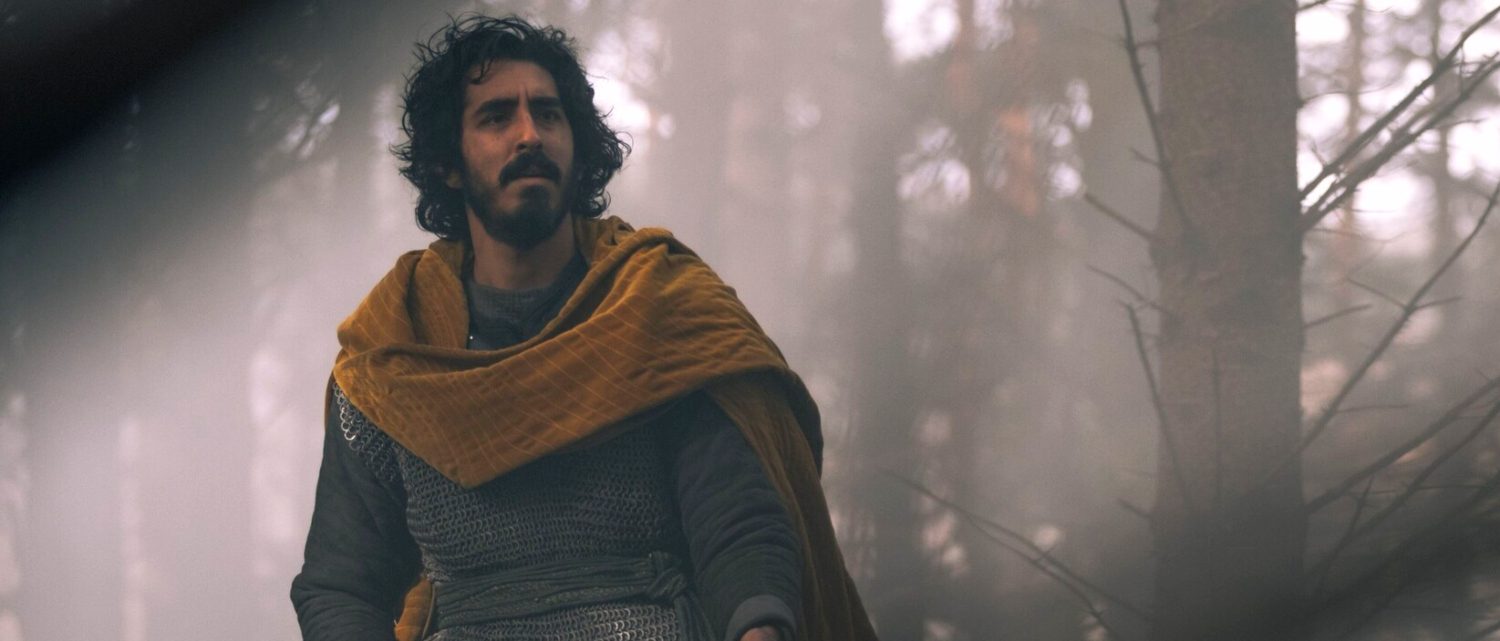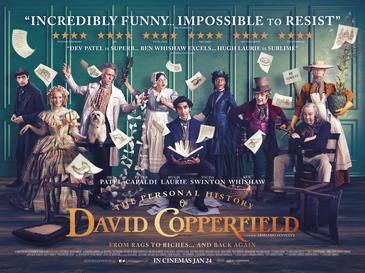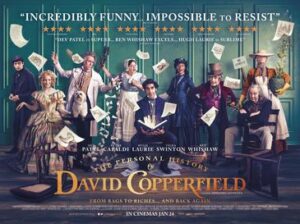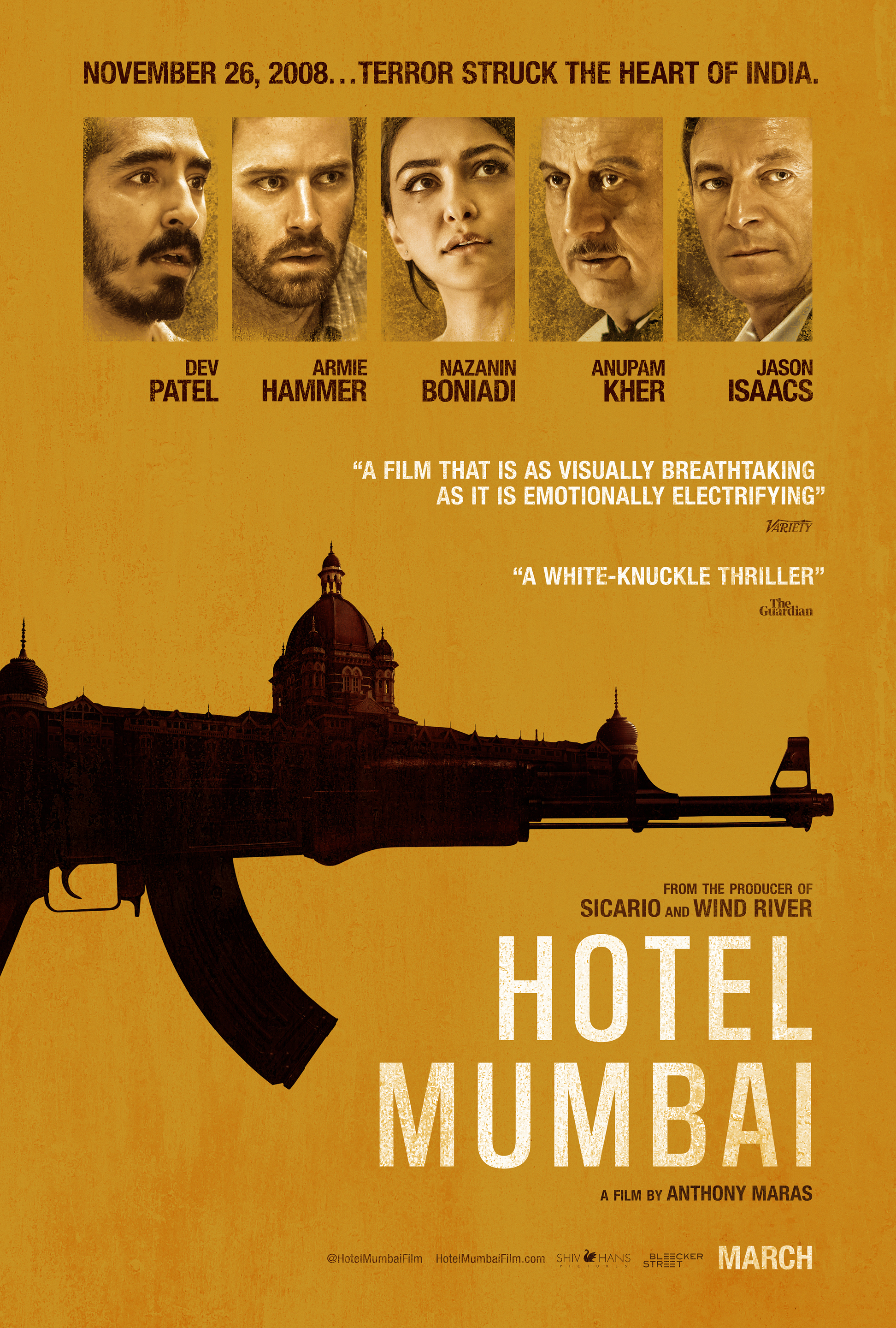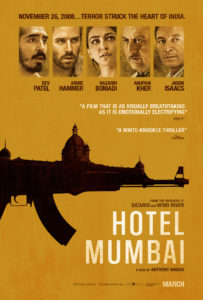Monkey Man
Posted on April 4, 2024 at 5:43 pm
B +| Lowest Recommended Age: | Mature High Schooler |
| MPAA Rating: | Rated R for strong bloody violence throughout, rape, language throughout, sexual content/nudity and drug use |
| Profanity: | Very strong language |
| Alcohol/ Drugs: | Drinking and drugs |
| Violence/ Scariness: | Extended and very intense peril and violence, rape, arson, guns, knives, other weapons |
| Diversity Issues: | Abuse of ethnic minorities |
| Date Released to Theaters: | April 5, 2024 |
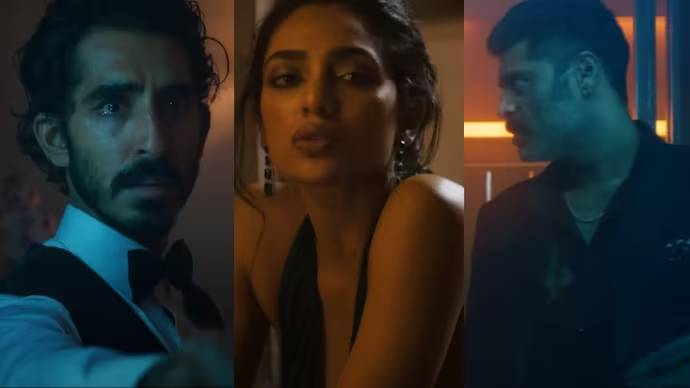
We knew Dev Patel was a talented and charismatic actor, and it turns out he is also an audacious, imaginative, and very impressive filmmaker with an exceptional gift for cinematic storytelling. If a movie’s biggest problem is that it has too many ideas, that’s a good problem to have. “Monkey Man” is clearly a passion project from someone who has absorbed the best of what movies have to offer and added some new thoughts of his own. In one scene near the end, as Patel’s character (not given a name in the film and listed as Kid in the credits) enters a room where there is a mirrored mobile. We get glimpses of him through the reflective disks. It adds to the tension of the scene and it is visually stunning.
That scene, like much of the film, is intensely violent, with very graphic and disturbing images and sounds. The plot can be summed up with one word, the simplest and most immediately powerful of all storylines: revenge.
We first see Kid losing a brutal fight in an underground club run by the sleazy impresario Tiger (Sharlto Copley), who pays a “blood bonus” for gore. Both Tiger and the audience are there for the gore, the more brutal the better. The fighters wear masks that cover their heads. Kid’s is a monkey.
Over the course of the film, we see why the monkey is meaningful to Kid. It goes back to the myths his adored and adoring mother told him about Lord Hanuman, the Hindu monkey god. Kid and his mother lived in an edenic, garden-like community, a sharp contrast in the flashbacks with the gritty reality of the urban setting in present day. It was destroyed in an ethnic cleansing and his mother was raped and murdered. His one purpose is to get close enough to the people involved to destroy them. We know, from experience stories of revenge, that it will not happen quickly and that he must learn some lessons before that can happen.
Patel draws from the myth of Hanuman but also from the history of cinema. The reflective disks I mentioned are a creative variation on the iconic mirror scene in “The Lady from Shanghai.” The “John Wick” series is cheekily called out as Kid looks over an assortment of guns, but it is reflected throughout the film in the bravura staging of fight scenes (bathrooms and kitchens are always good locations, and a giant fish tank is a nice touch) and in a big chase through the city streets. We might catch inspiration from the Bourne films and the stylishness of “Drive” and “Baby Driver” as well. But Patel does not copy or imitate. He learns.
This is very much his own story and even the smallest details reflect his singular vision. Someone should write an entire essay about his musical choices, exceptionally well-chosen. On example is in a very intense fight scene, where we might expect an energetic score; he goes in the opposite direction, a much more vivid reflection of his character’s mood and mode. And Patel is, as ever, a magnetic performer, his lanky body always elegant and graceful, which gives the fight scenes a balletic quality.
The editing is exceptionally dynamic but never kaleidoscopic or distracting. It is always in service of the story, pulling us forward into what is happening. Here and there, Patel is so intent on making sure we understand, he tells us more than we need; pulling a newspaper out of the garbage and putting food for a dog onto the page with a photo of one of the people he is chasing, picking a name from a bottle of bleach, a trans woman character explaining their identification with a statue representing both male and female gods. But the film’s evident passion and sincerity hold our affection, as does his introduction of endearing characters who care for Kid. Patel has called this “an anthem for the underdogs, the voiceless and the marginalized.” The action may be dazzling, but it is the heart that will stay with you.
Parents should know that this film is extremely violent, with graphic and disturbing images and sounds. Characters are injured and killed. A woman is raped and other women are trafficked. There are scenes of prostitution including nudity and explicit sexual situations. Characters drink, smoke, and use drugs and very strong language.
Family discussion: Why doesn’t the character have a name? What inspires him about the story of Hanuman? What does he learn from his time with the people in the temple?
If you like this, try: The “John Wick” series, “Polite Society,” and “Drive”

